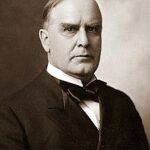President William McKinley’s decision to suppress Filipino independence sparked one of America’s darkest chapters. The McKinley Philippine American War began after he reversed promises of independence following the Spanish-American War. Filipino revolutionaries had fought alongside Americans against Spain. They expected freedom, not continued occupation.
The Controversial Decision
McKinley chose military suppression over diplomatic recognition of Filipino independence. He declared the Philippines unready for self-governance. This decision contradicted earlier American promises to Filipino leader Emilio Aguinaldo. The president prioritized American commercial and strategic interests over Filipino self-determination.
Brutal Military Campaign
American forces employed harsh tactics against Filipino independence fighters. ⚠️ Torture methods included the “water cure” and other brutal interrogation techniques. Concentration camps confined civilian populations suspected of supporting revolutionaries. General Jacob Smith infamously ordered troops to kill all males over ten years old.
Massive Casualties
The war resulted in catastrophic human losses across the Philippines. 📊 Estimates suggest 200,000 to 1,000,000 Filipino deaths from violence, disease, and starvation. American casualties totaled approximately 4,200 dead and 2,800 wounded. These numbers shocked the American public and international observers.
Impact:
The McKinley Philippine American War created lasting consequences for American foreign policy and international relations. 🌍 Anti-imperialist movements gained momentum across the United States and Europe. Critics condemned America’s betrayal of democratic principles in the Philippines.
Domestic Political Fallout
Opposition politicians attacked McKinley’s imperial policies during the 1900 election campaign. Anti-Imperialist League members included Mark Twain and Andrew Carnegie. They argued the war contradicted American founding principles of self-determination. Public opinion polls showed growing opposition to continued military occupation.
International Condemnation
European powers criticized American war crimes and civilian casualties. 🔥 International media reported extensively on torture and concentration camps. The war damaged America’s reputation as a champion of democracy. Foreign newspapers compared American tactics to Spanish colonial brutality.
Long-term Colonial Legacy
The suppression established American colonial rule lasting until 1946. Filipino resistance continued for decades after the official war ended. Economic exploitation replaced political independence as American corporations dominated Philippine resources. 📉 The war set precedents for future American military interventions in developing nations. The decision influenced American foreign policy throughout the twentieth century.
